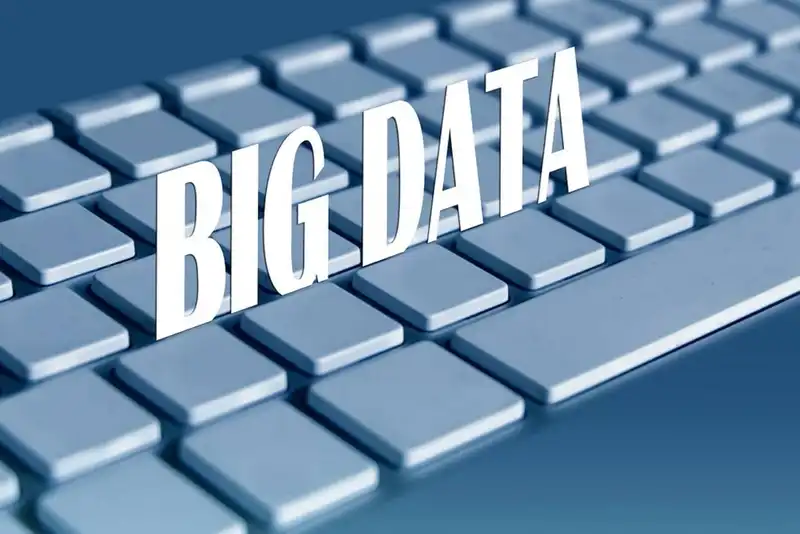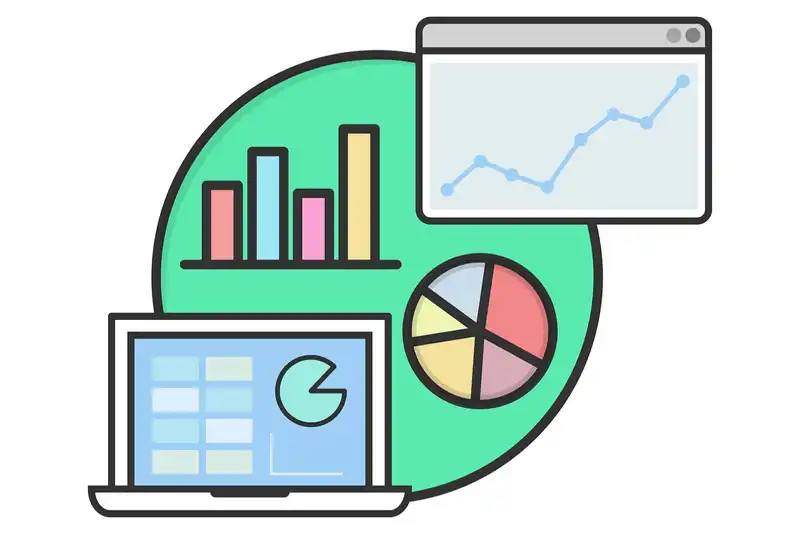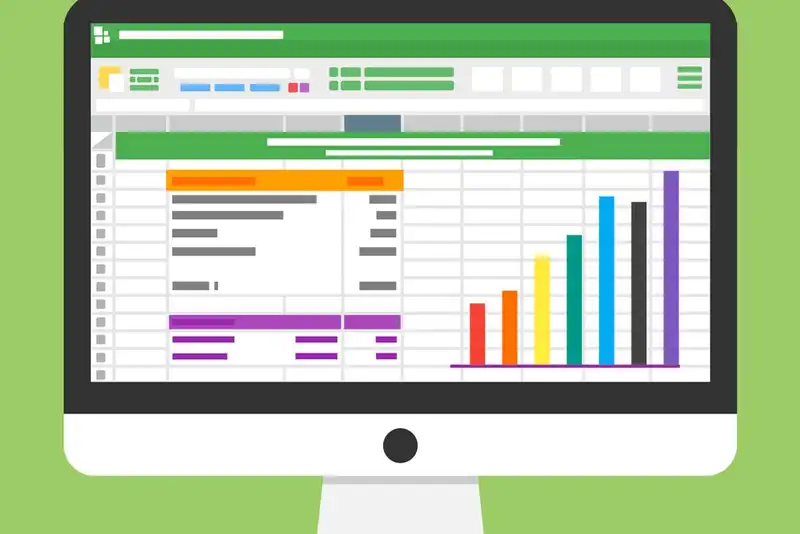Data Management Software- The Best Fit for Your Organization
What is Data Management?
Data management is defined as secure and efficient and cost effective collection, storage and use. Data management enables best data usage by organization to make decisions that have a positive impact on the business.
Data management covers factors like
- Creation, access and updating data across diverse data tiers
- Data storage across multiple cloud and on premise platforms
- Use data in a growing variety of apps, data analytics, and algorithms
- Ensure data privacy and security
The best option for data management is using a data management software to ensure reliable real time data is available for making decisions. The management software helps with data preparation, data cataloguing and search and data governance which allows people to easier access to information needed for analysis.
Why Is Data Management Important?

Many organizations are increasingly opting for data driven business decisions which results in improved marketing campaigns and optimize business operations and reduction in costs and helps in increasing revenue and profits. Lack of proper database management can lead to inconsistent data sets and data quality problems which limits an organization's ability to run business intelligence and data analytics applications.
A business should opt for the best data managing solutions suited to their unique requirements as data management-
- Provides better visibility- Database management helps increase the visibility of your data assets as it provides easier access for finding the right data quickly. Data visibility helps an organization be better organized and productive.
- Gives reliability- Database management reduces potential errors as there are processes and policies for data use and creating building trust in data used to make decisions. An organization can respond with better efficiency to market changes and customer needs with up-to-date and real time data.
- Offers security- Data management protects the enterprise data from losses, breaches and thefts as it has authentication and encryption tools. Software data organization provides security tools that ensures vital information is backed up and can be retrieved easily if the primary source become unavailable.
- Provides scalability- Using Data management software allows organization to scale data. When data processes are easy to repeat, you can avoid unnecessary duplication costs.
Data management can be a long, complicated process.
Zipschedules suggests the best data management software for your organization.
Data Warehousing

An organization needs to securely store enterprise data in a centralized location that can be easily retrieved and analyzed to provide useful insights. Hence a business must opt for data warehousing for secure electronic data storage. A data warehouse can be called an organization's single source' of data as it collates large amounts of data from multiple sources at a centralized location. A data warehouse, over a period of time, builds historical data records that gives invaluable inputs for data science and data analytics. The data stored in a data warehouse is derived from a wide range of data sources.
A typical data warehouse often has-
- A relational database which can be used to store and manage data
- An extraction loading and transformation solution for data analysis
- Capabilities for reporting, statistical data analysis and data mining
- Tools for visualizing and presenting data to users
- Tools to generate information by applying data science and artificial intelligence algorithms
Business Intelligence

Business intelligence is the use of business analytics and data tools, infrastructure and best practices to help an organization make better, data-driven decisions. Business intelligence provides a comprehensive view of enterprise, which can be used to reduce inefficiencies and adapt to changes. Business intelligence converts raw data into meaningful insights which can be used in decision making process to increase revenue and profits.
Business intelligence can help a business be better against competitors, boost profits and increase customer base. Business intelligence is a technology driven approach for making informed short-term and long-term critical decisions. Modern business intelligence solutions give priority to flexible and self-servicing data analysis.
Using a software for business intelligence ensures speedy and efficientdecision making, better internal processes and operational efficiency. A software identifies problems, spots upcoming trends and helps a business develop better strategies.
Big Data Management

When an organization has large amounts of raw data it needs proper management data solutions. Such large amounts of data which cannot be stored or processed with traditional techniques is called big data.
Big data management is organizing, directing and managing the large volumes of structured and unstructured data. The goal is to make sure the data quality is high and it can be easily accessed for business intelligence and big data analytics.
Management of big data has the following three basic features-
- Volume- Big data is the vast amounts of information which is generated every second via social media, cell phones, transactions, videos or text among others. The amount of data is mostly measured in terabytes or even zettabytes.
- Variety- The big data gathered in the form of photographs, audio, video and other such formats along with traditional demographic data such as phone numbers and around 80% of the information is unstructured.
- Velocity- This is the speed in real time at which big data is accumulated processed and analyzed to get the insights it contains.

Data management can be a difficult task.
Zipschedules suggests various data management software options available for your organization.
Data Visualization

Studies have shown that when data is presented in a visual manner, it is easier to comprehend. The graphical representation of master data like charts and graphs is data visualization. Data visualization is used for generating an idea, illustrating an idea, visual discovery and everyday data.
Most organizations implementing data management opt for dashboards for tracking and visualizing data from multiple data sources, providing visibility into the effects of specific behaviors by a team or an adjacent one on performance. Management software tools like dashboards use common data visualization techniques like- tables which are used to compare variables, pie charts and bar charts which provide a simple way to compare data components, line graphs that change in one or more quantities, histograms, which are used to identify outliers and scatter plots for connection between two variables.
Key Features of Data Management Software

A Data Management software enables users to create personalized databases for their data analytics and reporting. Software data design can also be used for building, implementing, and maintaining a system for master data management.
A database management software ensures that an organization reduces the duplication of data by sharing data files. Using management software also saves on data storage by ensuring proper data integration. As companies pay to store data, this also reduces the cost of data storage. A data management system is easy to use and hence anyone can work on a database management system.
Here are the key features of data management software-
- High-security level- A data management system has tiers of access to information. The organization can give access to certain data silos like access to sales data for the sales team. This information management ensures that only key personnel like the head of the department have access to all the information.
- Permanent data storage- All data is stored permanently in management software and there are policies in place for backup and recovery of data if primary data is lost.
- Multiple user access- Multiple users can use the management software to access data in one data store and they have their own interface to access data.
5 Best Data Management Software for Small Businesses

Data Management also improves customer service, provides more reliable data and better information management. Here is how data management can help businesses-
Save money- A data management software is able to collate data from multiple systems to create accurate reports and analytics. The management software can automate the report design and generation to track the data without any hassles. The accurate reports make it easier to detect waste, cut costs and spend in more cost effective ways.
- Automate tasks- Data has shown that 90% of employees spend nearly three hours daily on repetitive tasks. A data management software can automate the tasks using reference data management
reference data is information used to categorize data allowing the organization to reassign workers to complex tasks. - Manage customer data- Customer data management is crucial as it any errors can lead to improper billing or delayed delivery. A management software can detect incorrect data and easily sort data. The data management software also helps an organization collect more data on their customers.
- Manage employees- A management software can also help store employee data in one place. Such data storage can also be helpful as it can be integrated with a scheduling software or app like ZipSchedules to create and manage employee schedules.
1. Huddle

Huddle is a cloud based data management solution that can be used to manage different components of projects and collaborate with team members. A team can share files, control document version file request and more using Huddle. A central dashboard allows data file sharing platform and enables you to assign tasks. The management software also provides a secure workflow with robust security management capabilities. The data management system also enables users to leave their inputs on important projects work. The data management solution enables secure file sharing with internal and external users. The management software also has control management capabilities which give you in-depth audit trail on the changes made.
2. Profisee

Profisee is a master data management platform which creates and deliver relevant information across the organization. The data management system can create a single source of accurate and timely data which is a comprehensive representation of master data domain (domain mdm) and can be safely used as key data. The management software has management solutions which simplify the way to define, improve and enforce data quality. The management software allows you to browse, view and update master data and reference data records. The software has management capabilities to open and complete assigned tasks. The management software can find, review, and fix data quality issues.
3. Sumo Logic

Sumo Logic data management platform helps you make decisions based on data and reduce the time to probe any operational and security issues. The data analysis software that can help a business reduce time for identifying, investigating and resolving potential cyberattacks. The management software enables users to reduce downtime by deploying machine learning (ML) analytics. The data management software monitors your network as it has advanced data analysis capabilities that help reduce damage caused by cyberthreats. The data management system can also analyze data and pinpoint inefficiencies so that users can alter operations. The data management system also provides live training and webinars which reduces the time for monitoring and protecting management systems.
4. Tableau

Tableau management software helps an organization deliver self-service data analytics as it scales data automation and operationalization. The management software brings together the intelligent data flows which make it easier to connect your data. The data management system helps connect enterprise data and data sources to applications used by an organization for business growth and innovation. The data management software has management solutions that give you full view of data assets and sources and helps understand data lineage. The data management system also ensures that data governance and security controls align. The management software helps you manage the data within your analytics environment and ensures up-to-date data is available for making decisions.
5. Microsoft Excel

Microsoft Excel does not have the management capabilities of data management programs such as SQL Server and Microsoft Access, it can serve as a simple database that fills data management requirements. Excel can store large amounts of data and it a good system for data analysis and calculation. The data management tools can be used to build models for data analysis, write formulas for data calculation and data visualization. The program also has management solutions to remove duplicate data.

Data management is a complex and time-consuming process.
Zipschedules suggests you can easily organize and make sense of your data with the right data management software.


